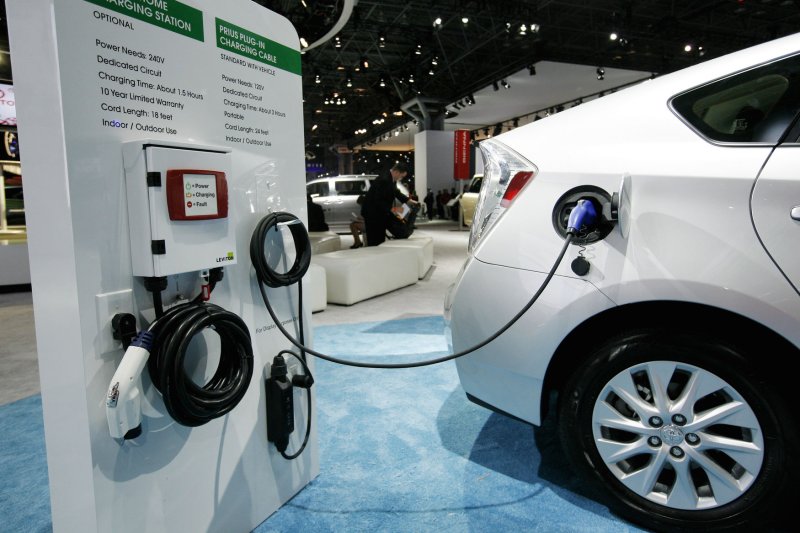German energy company E.ON working with funding from the European Commission to build an EV corridor linking Italy to Norway. File photo by Monika Graff/UPI. |
License Photo
Nov. 10 (UPI) -- German utility company E.ON and a mobility service provider said Friday they would work to establish an electric-vehicle corridor linking Norway to Italy.
With $11.6 million in funding from the European Commission, the German company and service provider CLEVER said they'd link the countries connecting Norway to Italy with a network of 180 charging stations for electric vehicles.
"Although, it is still early days, both companies are seeing a global shift towards electric vehicles," the companies said in a joint statement. "Countries as well as the European Union are beginning to make pledges to phase out petrol- and diesel-fueled cars and consumers and car manufactures are switching to electric vehicles."
Each station will be equipped with as many as six charging points with enough electricity to charge a 250-mile range battery in about a half hour. Charging stations will be spaced every 90 miles or so across Italy, France, Germany, Denmark, the United Kingdom, Sweden and Norway during the next three years.
In Germany, which has one of the greener economies in the world, E.ON already has plans to place an ultra-fast charging station at a motorway between Frankfurt and Nuremberg. Dorothee Bär, the federal transport minister, said the government set aside $355 million to help build tens of thousands of charging points on the German highway network.
Two million electric vehicles were on the road globally last year, though nearly all of those were in China, the European Union and the United States. A report from the International Energy Agency found that dense metropolitan areas were taking leadership roles in encouraging electric vehicles because of pollution concerns.
Beijing is expanding the number of electric vehicles in the public transportation sector. In the United States last month, a handful of governors from western U.S. states rolled out plans to expand access for electric vehicles along more than 5,000 miles of highway.
Economists at the Organization of Petroleum Exporting Countries said the share of alternative-fuel vehicles will increase to about 16 percent by 2040. They lowered a long-term forecast for oil demand in part because of an expected decline in the global economy, structural shifts and "fuel switching, particularly in the road transportation sector."















